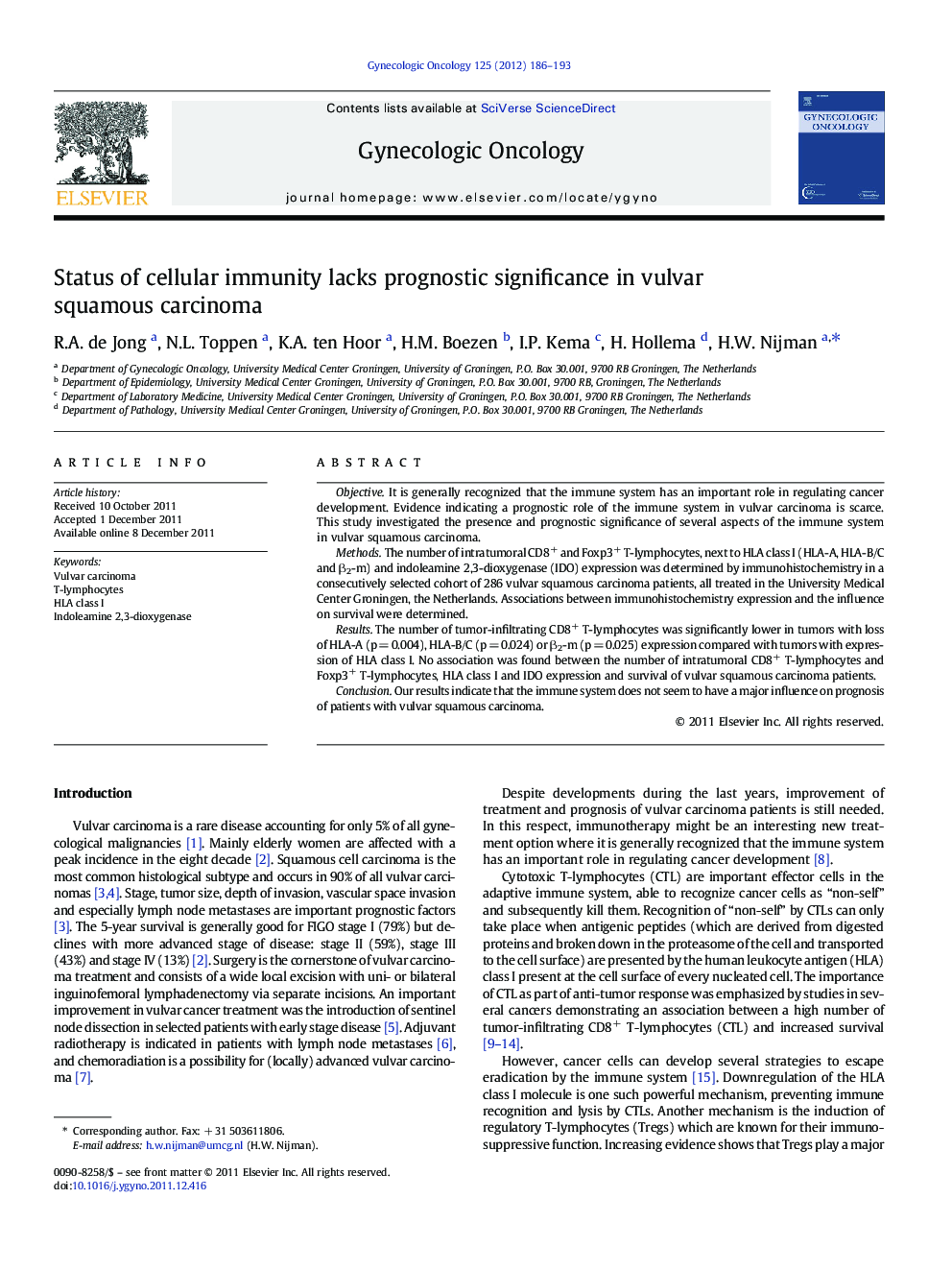| Article ID | Journal | Published Year | Pages | File Type |
|---|---|---|---|---|
| 3945268 | Gynecologic Oncology | 2012 | 8 Pages |
ObjectiveIt is generally recognized that the immune system has an important role in regulating cancer development. Evidence indicating a prognostic role of the immune system in vulvar carcinoma is scarce. This study investigated the presence and prognostic significance of several aspects of the immune system in vulvar squamous carcinoma.MethodsThe number of intratumoral CD8+ and Foxp3+ T-lymphocytes, next to HLA class I (HLA-A, HLA-B/C and β2-m) and indoleamine 2,3-dioxygenase (IDO) expression was determined by immunohistochemistry in a consecutively selected cohort of 286 vulvar squamous carcinoma patients, all treated in the University Medical Center Groningen, the Netherlands. Associations between immunohistochemistry expression and the influence on survival were determined.ResultsThe number of tumor-infiltrating CD8+ T-lymphocytes was significantly lower in tumors with loss of HLA-A (p = 0.004), HLA-B/C (p = 0.024) or β2-m (p = 0.025) expression compared with tumors with expression of HLA class I. No association was found between the number of intratumoral CD8+ T-lymphocytes and Foxp3+ T-lymphocytes, HLA class I and IDO expression and survival of vulvar squamous carcinoma patients.ConclusionOur results indicate that the immune system does not seem to have a major influence on prognosis of patients with vulvar squamous carcinoma.
► The number of intratumoral CD8+ T-lymphocytes was lower in tumors without HLA class I expression. ► The number of intratumoral CD8+ and Foxp3+ T-lymphocytes had no influence on survival of vulvar carcinoma patients. ► HLA class I and IDO expression had no influence on survival of vulvar carcinoma patients.
